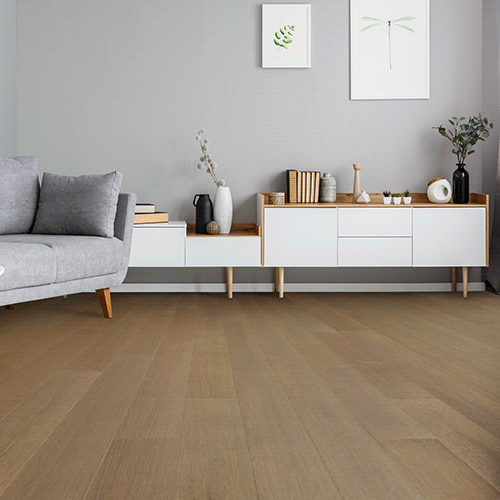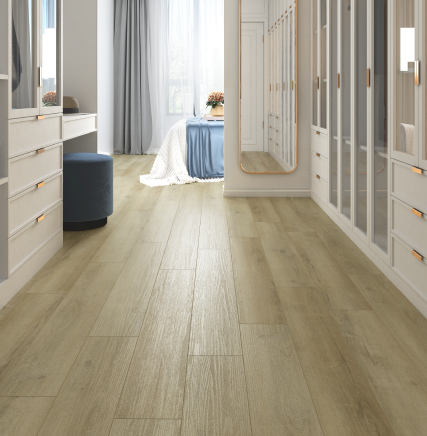Mold-and Mildew-Resistant Flooring Offers Extra Protection in Damp Environments
Laminate flooring is often chosen as an alternative to wood floors because it offers what customers want most from wood—its warm, sophisticated look—without many of wood’s downsides. One of wood’s main weaknesses as a flooring material is that it doesn’t hold up well to excessive moisture. Most laminate wood products from Empire Today® are specially engineered to provide some level of water resistance, and certain laminate products are even 100% waterproof. But water can cause more than just physical damage—it can also lead to the growth of mold and mildew. Choosing mold- and mildew-resistant laminate flooring will help prevent growth in the parts of your home that encounter above-average levels of moisture.
Is Laminate Flooring Mold-Resistant?
While most laminate floors will stand up to the effects of moisture better than natural hardwood, not all laminate flooring is mold resistant. Empire® offers a variety of laminate flooring products that have been treated to resist the formation of mold and mildew. If you’re shopping for laminate flooring for the bathroom or kitchen, mold and mildew resistance are key features to consider. When most people hear about household mold and mildew, they imagine the unsightly black slime that forms in the cracks and corners of a bathroom. And while that is a main downside of mold and mildew, their growth is more than just a visual issue. Mold and mildew can greatly impact the quality of your home’s atmosphere by releasing spores that can potentially cause unpleasant allergic reactions. Having a floor that is resistant to mold and mildew will keep your bathroom, kitchen, or laundry room looking great and everyone in your home breathing easier. If mold or mildew growth is a concern for you, ask your flooring professional about products from Empire that will help keep mitigate their growth.



